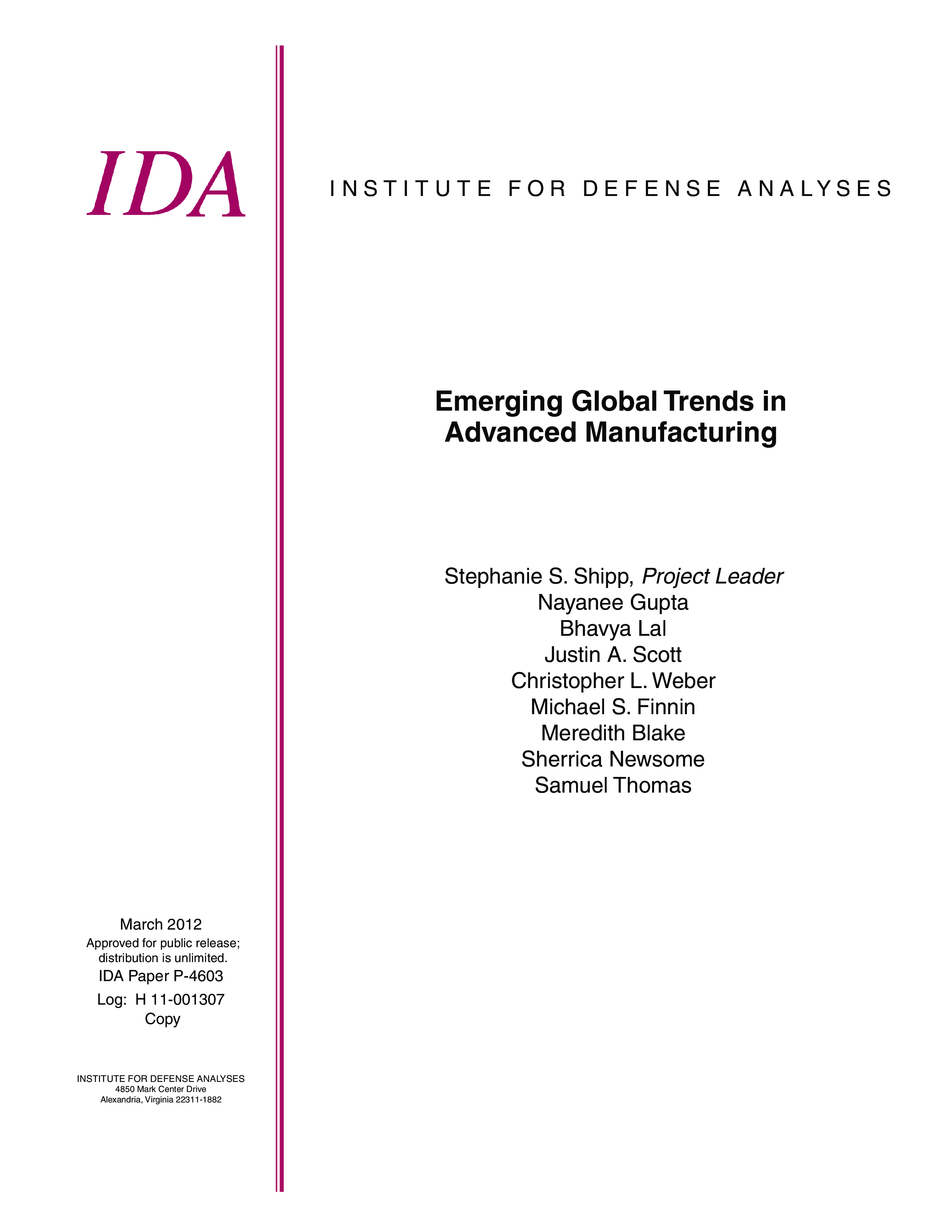This study defines "advanced anufacturing" and explores global trends based on government investment in manufacturing-related research. We chose four technology areas (semiconductors, advanced materials with a focus on integrated computational materials engineering, synthetic biology, and additive manufacturing) and reviewed the current state, global developments and trends, and science and technology advances and policies needed to accelerate the development of the technology area. We also examined location factors and country innovation policies. Based on these activities, we forecast an advanced manufacturing scenario for 20 years in the future: manufacturing innovations will have largely displaced today's traditional manufacturing, replacing labor-intensive manufacturing processes with automated processes that rely on sensors, robots, and condition-based systems that can make some decisions while providing data and information. Advanced manufacturing will increasingly rely on new processes that enable flexibility such as biologically inspired nanoscale fabrication processes and faster additive manufacturing techniques capable of building at area or volume rather than by layering materials. Manufacturers will also increasingly use advanced and custom-designed materials. By 2030, synthetic biology could change the manufacturing of biological products.

